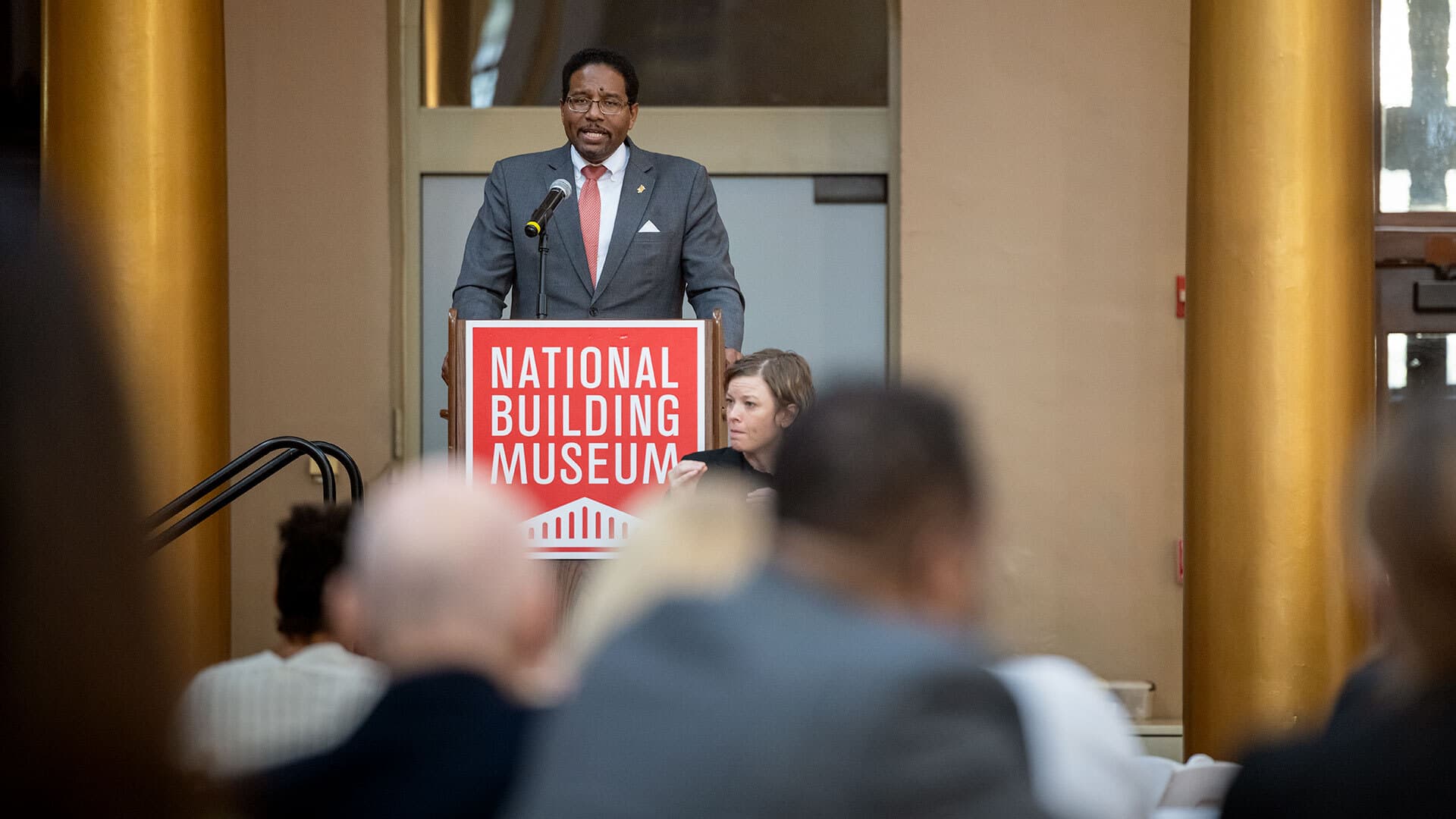COLLEGE PARK, Md – The University of Maryland joined other members of the Consortium of Universities of the Washington Metropolitan Area today to release a set of recommendations to help focus efforts to reduce gun violence in the United States. The recommendations were developed as part of The 120 Initiative, an effort established by the Consortium in June 2022 led by UMD President Darryll J. Pines and George Mason University President Gregory Washington, and named for the average number of victims who die each day due to suicide or gun violence.
The 120 Initiative engaged more than 100 experts in a wide range of areas, such as public and mental health, gun violence, polarization, business sector engagement, citizen advocacy, education and technology, including five experts from UMD.
After vigorous debate and rigorous analysis of available research over the course of seven months, the experts decided on evidence-based recommendations that provide all sectors tangible steps to take, individually and collectively, to drive down gun violence. The recommendations fall into three areas with the most promise:
- Expand and build on effective community engagement and violence interruption programs
- Explore anti-gun violence prevention messaging and education campaigns, without vilifying law-abiding gun owners
- Expand the use of safety devices and safety training.
The recommended proposals range from empowering and establishing community-based programs to researching effective anti-gun violence messaging campaigns to establishing comprehensive violence prevention education for students of all ages.
The Consortium experts’ consensus was that such approaches will work best in combination with smart policy and legislation, funding in-depth scholarship, expanding mental health services, and investing in long-term approaches to addressing systemic inequities.
Members of the Consortium shared these recommendations at the 120 Initiative Regional Conference on Gun Violence, held today at the National Building Museum, at which Pines delivered opening remarks.
“The 120 Initiative is about crafting innovative, actionable solutions that are based on facts and evidence, and cross all political parties, cultures, races and geographies,” said President Pines. “Gun violence is a uniquely American Grand Challenge that requires all of our attention if we want a better future for our nation.”
The recommendations come on the heels of recent tragedies at Michigan State University and the University of Virginia, in El Paso, Texas, and Half Moon Bay and Monterey Park, California. According to the Gun Violence Archive, more than 6,000 people have died as a result of gun violence since the start of 2023. https://www.gunviolencearchive.org/
“These recommendations are directly inspired by the tragedy in Uvalde, Texas, which caused the nation to cry out for someone to do something to finally end the nation’s epidemic of gun violence,” said George Mason University President Gregory Washington. “Our faculties have come together to offer solutions that can be implemented alongside wise legislation, adapted to broad varieties of communities, and address this problem at its roots. We don’t have to feel helpless to the problem anymore.”
Despite very diverse perspectives among Consortium experts, it is unanimously agreed that more research is essential to understanding how best to stem gun violence, especially as firearms are the leading cause of death for children and adolescents (1-19 years of age). An increase in research will lead to a greater understanding of gun violence and its dynamics, including the ways in which it is impacted by community engagement, social awareness and widespread education.
“The 120 Initiative reflects higher education at its very best -- bringing experts with disparate backgrounds and beliefs together to address our most challenging problems, and our D.C. area institutions have a history of fostering research that offers practical solutions to such challenges. I am grateful, especially as a Michigan State alumnus, to all who have participated in the 120 Initiative to date, giving their time and expertise selflessly to help solve one of our nation’s deepest and most complex crises,” said Andrew Flagel, PhD, President and CEO of the Consortium.
UMD experts participating in the development of the recommendations included:
Zubin Jelveh, PhD, Assistant Professor, College of Information Studies
Dawn Jourdan, PhD, JD, Professor and Dean, School of Architecture, Planning and Preservation
Samuel (Woodie) Kessel, MD, MPH, Professor of the Practice, Family Science, School of Public Health
Joseph Richardson, Jr., PhD, Joel and Kim Feller Professor and MPower Professor of African-American Studies and Medical Anthropology
Sally Simpson, PhD, Distinguished University Professor of Criminology & Criminal Justice, and Director, Center for the Study of Business Ethics, Regulation, & Crime (C-BERC)

